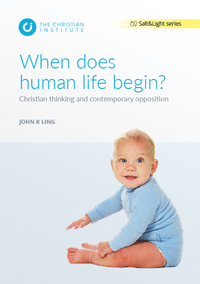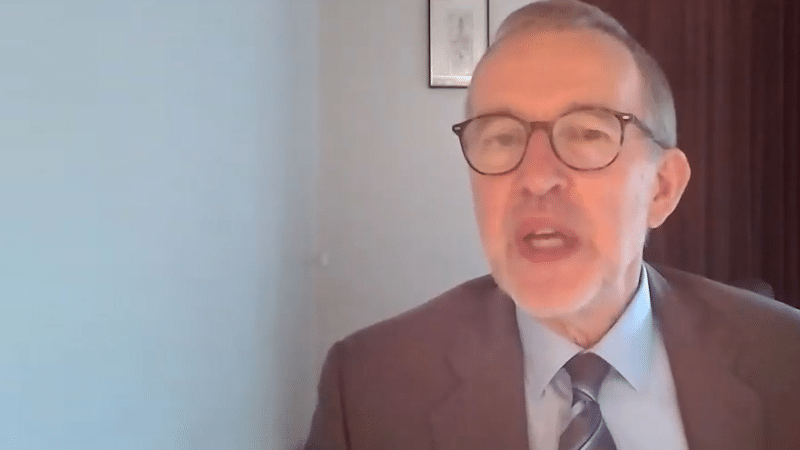According to Department of Health and Social Care figures, the number and rate of abortions in England and Wales are at an all-time high.
Government statistics also show a sharp rise in unsupervised chemical abortions, where women can take abortion pills at home if the unborn child is less than ten weeks old.
all human life from day one onwards is special and precious, to be protected and cherished
In an interview with the Institute’s Simon Calvert, bioethics expert Dr John Ling described the current levels of abortion as “ethically reprehensible”.
Dr Ling helped to found Evangelicals for LIFE and has lectured, debated and written on bioethical issues for over thirty years. Prior to his retirement, he was a lecturer in biochemistry and bioethics at the Institute of Biological Sciences at the University of Wales in Aberystwyth.
In his booklet, When does human life begin?, written for The Christian Institute, Dr Ling shows how the Bible teaches that life begins “at no time other than at conception” and that “all human life from day one onwards is special and precious, to be protected and cherished”.
Analysis
Labelling the 210,860 abortions last year as “abhorrent”, the bioethicist sought to convey the shocking reality of the problem confronting us.
“There must be, in England and Wales, on every weekday, about 800 abortions. So that’s 800 every Monday, every Tuesday, every Wednesday, every Thursday, every Friday,” a situation he described as “horrendous”.
“There’s nowhere to hide, is there, from that sort of figure? It mocks us, it really does, as a society, as a country.”
Convenience
Responding to the possibility of emergency Covid regulations for ‘DIY’ home abortions being extended, Dr Ling raised concerns about the traumatic effect on women having to dispose of a “sizeable” foetus in the home and the associated dangers of undergoing abortion without medical supervision. He feared the Government may opt to retain the measures as a matter of convenience.
On the subject of disability, the bioethicist said that, “as a society”, we had a “strange relationship” with the disabled. He explained that, whilst “we love them”, provide for them, and support them, “we’re still aborting over 3000″ disabled people every year.
all human life from day one onwards is special and precious, to be protected and cherished
Think again
Asked how we might persuade people who support abortion to think again, Dr Ling highlighted the importance of educating people about “what, in particular, is being aborted”.
“I think most people are unaware of the development of the unborn child”, he said. Adding that at three weeks into a pregnancy “the heart of the unborn child starts beating” and at six weeks “brain waves are detectable”.
“We’re not talking about just a collection of cells. You and I were once embryos and foetuses”.
He expressed bewilderment that, in the face of the beauty and wonder we see in the development of an unborn child, someone could still decide that such a life was not worth living and take it.
“Where is the dignity? Where is the wonderfulness of new human life?” he asked. “There’s a callousness to abortion that I wouldn’t want anyone to forget. It is a barbaric and a bloody reality”.
“We should never forget that, and what it does to the unborn child.”
Christian thinking and contemporary opposition
John R Ling
When does human life begin? It is a fundamental and decisive question because your answer reveals your understanding of the nature and status of the human embryo. It also shapes your stance on the big bioethical issues of the day such as abortion, cloning and embryonic stem cell research. There are many voices sowing confusion, but the Bible is unmistakably clear that human life begins at conception. In this booklet, John Ling provides a wide-ranging explanation of biblical truth, the historical Christian perspective and evidence from modern science to support this position.


